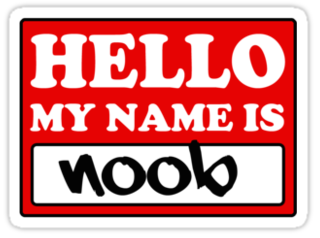 Being the “new kid” in the office isn’t always easy, and it’s even more of a challenge when you’re in your first “grown up” job out of college, and may seem like a kid to colleagues. It’s unlikely that you’ll never work with a young professional – someone with less than five years of experience, and it’s important to understand how your experience at an institution or in a specific role can help them grow into an effective member of your team.
Being the “new kid” in the office isn’t always easy, and it’s even more of a challenge when you’re in your first “grown up” job out of college, and may seem like a kid to colleagues. It’s unlikely that you’ll never work with a young professional – someone with less than five years of experience, and it’s important to understand how your experience at an institution or in a specific role can help them grow into an effective member of your team.
The student worker
Before thinking about that new, full-time, fresh-out-of-college employee, it’s important to consider student workers (interns, volunteers, or however you refer to them on your campus). These students have different priorities in their role on your team and in their life, and live in a very different “world.” They’re eating pre-made dining hall food, surrounded by their friends 24/7 yet away from their family, and ultimately living in a bubble built around their college campus. Their stressors are about class projects, friendship drama, and what they’re going to do after they graduate.
For many student workers, this opportunity is their attempt to answer the question, “is this what I want to do?” With this in mind, it’s especially important to have a conversation with each student, either individually or as a team, before they dive in to work. You may have ideas for them (renaming files on the server or something a little spicier), but it’s important to incorporate their individual passions, curiosities, and skill sets into their workload.
Even if you’ve found the perfect balance of tasks for a student worker – some grunt work complimented by fun tasks that highlight the student’s skill sets and interests – it’s important to check in on a consistent basis. Team meetings are less intimidating for most students, but a one-on-one meeting has its own benefits, allowing students to open up about their ideas for future projects, or the direction of their experience. It’s important, during these check ins, to be sure students aren’t feeling overwhelmed, and are (overall) happy with the work they’re doing.
These student interns are graduating and going off into entry level jobs all over the place, and one may just pop up in your office. Each internship experience (on a campus or otherwise) is a little bit different, with some students working exclusively in an office right next to their supervisor, while others were allowed a more flexible experience; with a supervisor who just wanted the work done, no matter when or where. These internship experiences ultimately help shape the way our students transitioning into young professionals view their first job, which could cause a serious rift as they adjust to the new position.
The first few weeks
Like anything that’s new, a young professional would certainly have some anxiety and questions about their new role. Some of those questions may be:
- What does the organization chart look like?
- What does everyone else do?
- Where do I put my lunch?
- Where can I park?
- Where’s the closest bathroom?
- What’s the deal with the gym on campus?
- Who will sit with me at lunch?
- How do I listen to a voicemail?
- Do I have to pay someone to use the coffee maker in the office?
- Do I have to stay at this desk all day?
- Who should I talk to, or not talk to?
It seems silly on the surface, but with the stress of the first day on top of the nervous excitement of their first job, these are burning questions that some may be too shy to ask. Be sure to answer these and other seemingly silly questions, and even suggest attending a campus tour or information session, to get an authentic (as possible, that is) feel for student life on campus.
Ultimately, the first few weeks for a young professional will feel awkward and a little uncomfortable as they attempt to determine the difference in responsibilities between “their” new job, and “your” job that you may have had for years. There may be times when a young professional takes away parts of your job responsibility, which can be frustrating, especially because you can probably do it more efficiently and overall better. The key is direct and positive communication; these young professionals don’t know what they don’t know. They may have taken on that task because it interested them, or they have a strong skill set in the area, not to steal work away from someone else. With a direct comment, such as, “Jackie, I noticed you started editing the photos from the ceremony last night. I appreciate it, but I’m responsible for the editing. I’ll let you know in the future if I need any help with a bigger job!” you won’t make your co-worker feel as though they’ve done something wrong, but also help them to better understand workflow and job responsibilities in the office.
College student energy
The young professional was, more than likely, used to being busy in college. College students are balancing classes, group projects, clubs, sports, friendships, hobbies, on-campus activities, and so much more every day. Entering the working world is a little bit of a shock. Each day, they come to work, go home, maybe play sports or have their own hobbies, and repeat. It is much more routine than their last four years of college, and that energy has to go somewhere; usually, their work.
It can be seen, often, in accidentally taking a team member’s work responsibilities, continuously asking “but, why?” and challenging “the way it’s always been done.” This energy is important and useful, but must be controlled and focused in the right direction. Much like a student worker, supervisors of young professionals can easily determine tasks that are appropriate based on what needs to be done, complimented by the work that can be done thanks to a specific skill set or interest.
Young professionals with excited energy who ask “why” are often seen as “difficult to work with.” There’s sessions at countless conferences about “how to deal with difficult people in the workplace,” but these young professionals should not be unfairly sorted into this group off the bat. This excited energy does not always mean “difficult,” it often means “change agent.”
Continued support
Even as a young professional begins to settle in your office, along with the office settling in to a new team member, it’s important to provide continued support and direction. The first few months are about learning the basics of the job, while the first year is about learning the culture of the workplace and the challenges that come with it.
It’s unlikely that a young professional’s energy will die in the first few months on the job, which makes it easy to involve them in larger projects, and focus their excitement in the right direction. Using phrases such as “I appreciate your effort,” “I think your skills would be strong for this project,” or “can we work together on…I can show you the way that we’ve been doing it but would love your ideas” will bring some positive energy and new opinions into the workflow. With this in mind, be open to new opinions and ideas, especially if you’re asking for them directly. A new employee, not just a young professional, has the benefit of ignorance regarding history, office politics, or otherwise, and will give an honest opinion of the task at hand.
Honest and direct communication is not reserved only for when a young professional accidentally steps on someone’s toes; it is something that should be ongoing between everyone in your office. This type of communication builds trust between team members, which ultimately creates a more positive, creative, and effective team. Before long, that young professional will become a key part of the workflow and process, until your next young professional joins the team!



